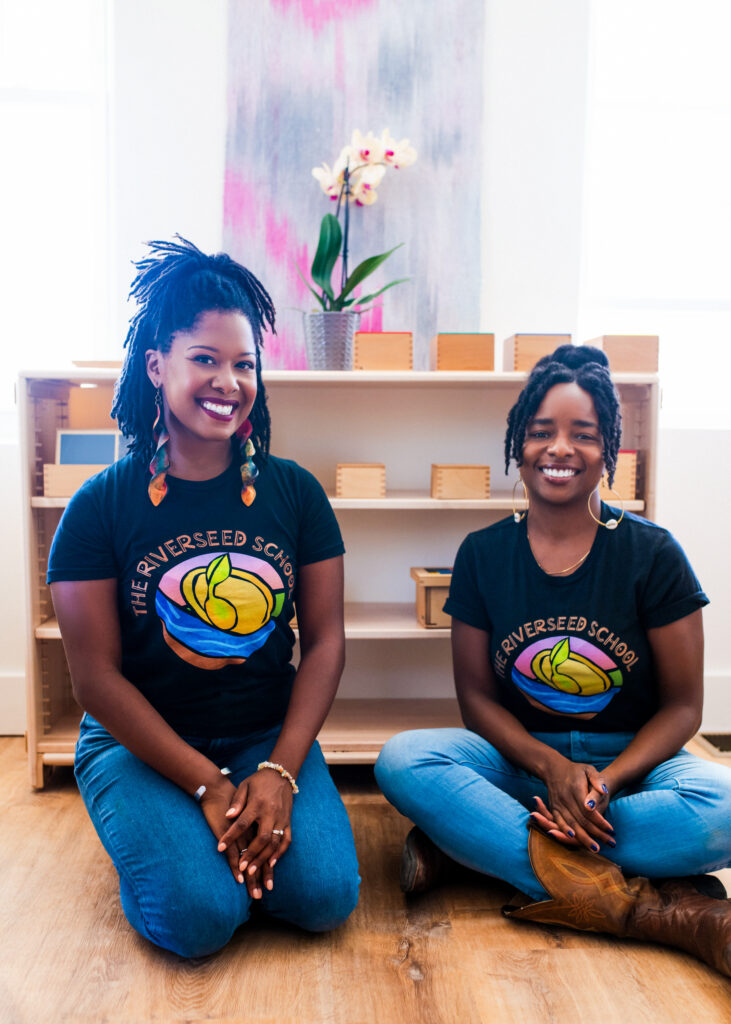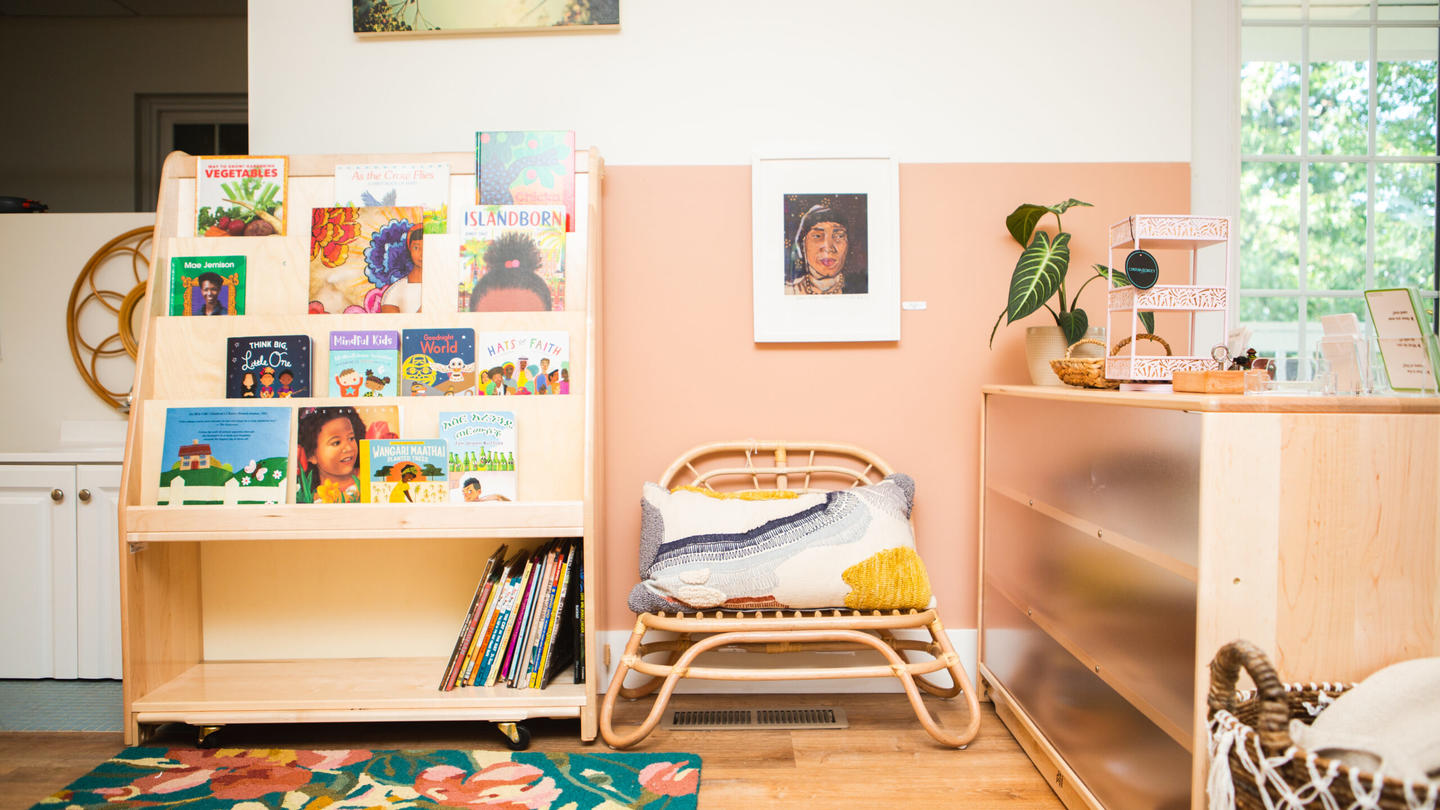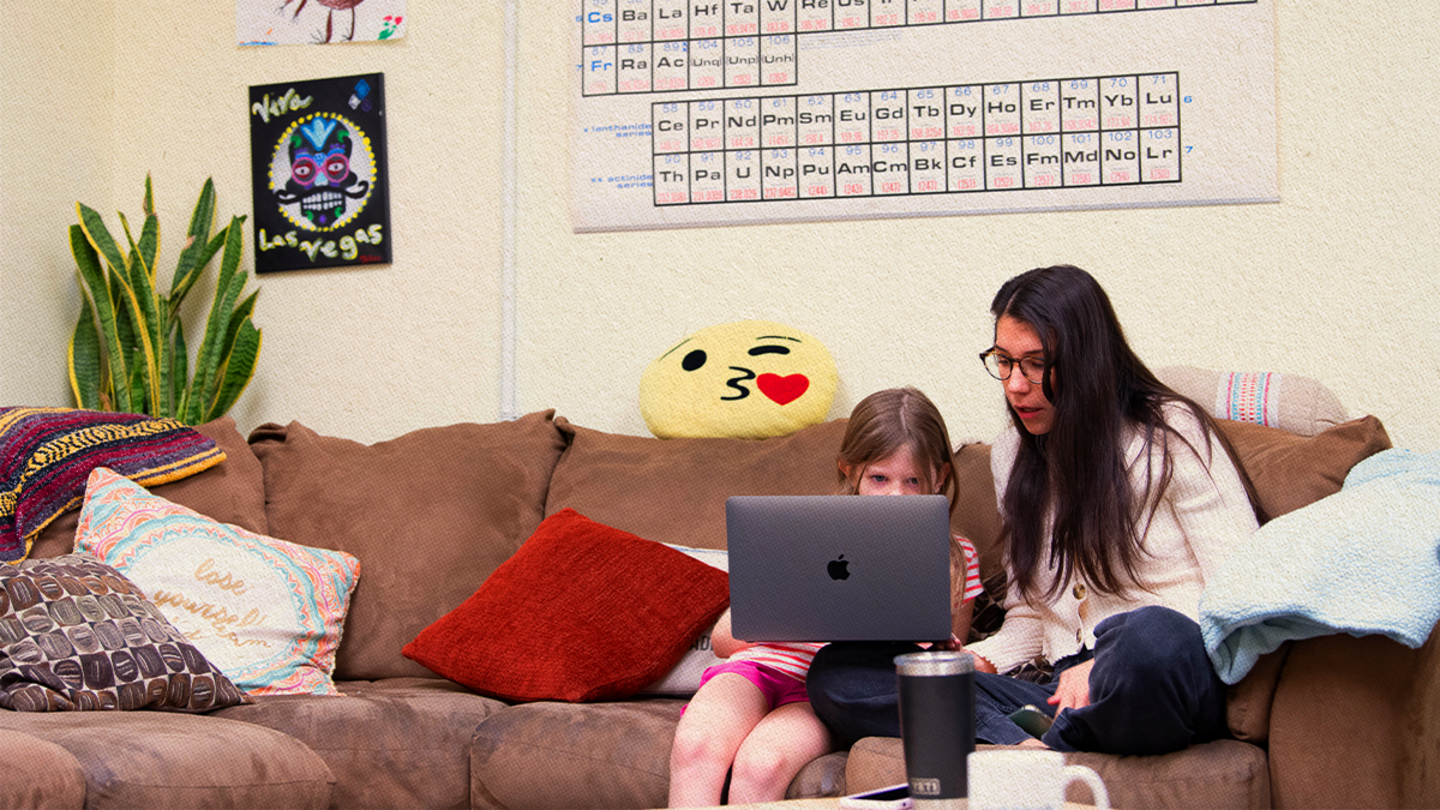"What does school look like as a place you go to heal rather than a place you must heal from?" That's the question teachers Zani Dalili-Ortique and Ebony Marshman asked themselves, their colleagues, and their neighbors beginning in 2019. Both say they couldn't have imagined that a short three years later, it would be a central guiding question of a new school they are now running.
The Riverseed School, a Washington, D.C., public charter Montessori school in the Wildflower Schools network and a grantee of Stand Together Trust, was started by Zani and Ebony in response to their desire to take a holistic approach to education.
The opening of Riverseed in the Fall of 2022 illustrates what is possible when teachers, families, and a community come together to intentionally build a school environment that includes the every child's social and emotional needs so that learning can become a lifelong endeavor that happens anywhere. It also offers a vision of the world's future when there is true pluralism and a wider education market.

A school to support students and the community
Zani and Ebony taught in traditional and Montessori settings for years. Through those experiences, they started gaining a sense of the type of teaching that was authentic to them -- a small, intimate community with older kids and younger kids working together and learning from each other. Montessori was appealing because it is a slow learning method -- each child goes at their own pace, and teachers really tune into each child and their needs. They'd both taught in private and public-school settings, and as Black women, they couldn't help but notice how most families in many of the Montessori schools they taught in were wealthy and white.
"There is all this school choice in another part of the city," Zani reflected. "I was driving an hour across town so that I teach in a way that feels authentic to me. I was spending so much energy building another neighborhood, and I wanted to be spending it on building my own neighborhood."
The desire to give more choice to students at-risk compelled Zani and Ebony to open The Riverseed School, one of two public charter Montessori schools east of the Anacostia River in Washington. The school is in a stately house in the neighborhood where many of its students live.
Because many of the students at Riverseed live within just a few blocks of each other and their teachers, apprehension typical of the first day of school was nowhere to be seen at Riverseed. In the months leading up to the school's opening, Zani and Ebony visited each of their students' homes, so the students already knew their teachers and many of their peers, too.
These details are not minor for Riverseed and the Wildflower school model. The Wildflower approach aims "to be an experiment in a new learning environment, blurring the boundaries between home and school, between scientists and teachers, between schools and the neighborhoods around them."
"Within the walls of the Riverseed School, my heart finds solace, knowing that my 4-year-old is not only receiving a quality education but also cultivating essential life skills, empathy, and the courage to navigate a world that may not always recognize their brilliance," a parent of a student at Riverseed told Stand Together Trust. "Here, I witness the transformative power of education to reach the child's spirit and uplift them. In this intimate setting, my child is not only embraced as a student but celebrated as an invaluable member of a school community."
By embedding the schools in the neighborhoods of the students they enroll, Wildflower schools like Riverseed aim to create a "seamless learning environment" where children not only engage in development in school, but the community is connected to the students and school, too.
The students at Riverseed often eat breakfast and lunch on the porch. There is a fenced-in playground and yard by the sidewalk where neighbors frequently stroll. On more than a few occasions, Zani and Ebony have brought the students outside and noticed neighbors joining the singing and dancing of the class or just cheering for the children as they pass by.
This visibility of the children at school helps Riverseed meet a core principle of Wildflower schools -- that "stakeholders" at schools extend beyond parents and families of students. More than just reminding the community about the presence of children, Riverseed's location is meant to encourage the neighborhood to be "stronger and healthier for children."
Zani and Ebony rely on community members regularly to support their efforts to build Riverseed. When Riverseed hosted their ribbon cutting ceremony, community members were there. As teachers, administrative tasks like fundraising, applying for a charter, and driving enrollment are not skills Zani and Ebony learned in their training. So, they operate from a perspective that they can learn from others around them and have relied on the community for assistance in these areas. This humility not only strengthens their leadership and the school, but it's also an example for the students.
Showing what it means to always be learning
Traditional school settings place a lot of pressure on meeting standards, which can become an expectation that if you don't know something or make a mistake, you're failing somehow. Yet, that's not how the real-world works. So much of life results from trial and error, seeking support, and expertise from others, and effort.
"There's still renovations being done on the school," Ebony said during their first semester. "We're building one class at a time, starting with 3- and 4-year-olds this year, and expanding as they grow. So, the students are seeing right in front of them that we're all—teachers and students -- learning together."
Wildflower requires all schools to have co-founders since starting a school is a huge endeavor and having a partner builds support to share the load. Wildflower asks schools to adopt their nine core principles as a decentralized network of Montessori schools. They also provide initial funding in the form of grants and loans. Their other resources -- like templates and tools -- are meant to help teachers but do not require them to be used.
"We had these ideas for a school, but it wasn't until we connected with the Wildflower that there was a pathway," Zani explained. "It was a fraught environment at times while we were getting started but we had a lot of support from families in the community and Wildflower. We were never alone."
Zani and Ebony know that Riverseed School is not for everyone, and that Montessori is not for everyone. They are adamant, however, that educators see what is possible when teachers decide to lead schools and build a learning environment that is more authentic to them and the children of their communities.
The Riverseed School is supported by Stand Together Trust, which provides funding and strategic capabilities to innovators, scholars, and social entrepreneurs to develop new and better ways to tackle America’s biggest problems.
Learn more about Stand Together’s K-12 education reform efforts.




